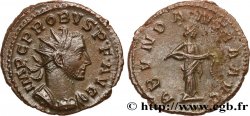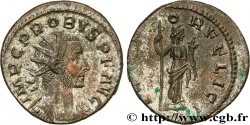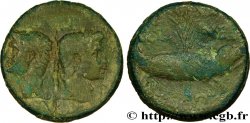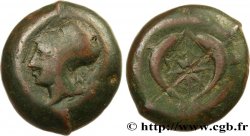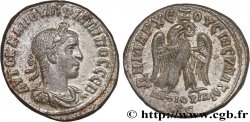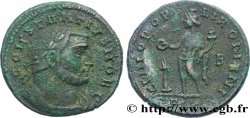E-auction 623-612705 - brm_642351 - PROBUS Aurelianus
You must signin and be an approved bidder to bid, LOGIN TO BID. Accounts are subject to approval and the approval process takes place within 48 hours. Do not wait until the day a sale closes to register. Clicking on « bid » constitutes acceptance of the terms of use of cgb.fr private e-auctions.
Bids must be placed in whole Euro amounts only. The sale will start closing at the time stated on the item description; any bids received at the site after the closing time will not be executed. Transmission times may vary and bids could be rejected if you wait until the last second. For further information ckeck the E-auctions F.A.Q.
NO BUYER'S FEE.
NO BUYER'S FEE.
| Estimate : | 60 € |
| Price : | 30 € |
| Maximum bid : | 30 € |
| End of the sale : | 24 March 2025 15:00:00 |
| bidders : | 6 bidders |
Type : Aurelianus
Date: 277
Mint name / Town : Lyon
Metal : billon
Millesimal fineness : 50 ‰
Diameter : 21,5 mm
Orientation dies : 6 h.
Weight : 4,19 g.
Officine: 4e
Coments on the condition:
Bel exemplaire, centré. Joli buste. Patine grise
Catalogue references :
Predigree :
Exemplaire provenant du trésor de Guercheville
Obverse
Obverse legend : IMP C PROBVS. P. F. AVG.
Obverse description : Buste radié et cuirassé de Probus à droite avec pan de paludamentum, vu de trois quarts en avant (B01).
Obverse translation : “Imperator Cæsar Probus Pius Felix Augustus”, (L’empereur césar Probus pieux heureux auguste).
Reverse
Reverse legend : ABVNDANTIA AVG/ -|-// IIII.
Reverse description : Abundantia (L'Abondance) debout à droite, tenant des deux mains une corne d'abondance qu'elle déverse.
Reverse translation : “Abundantia Augusti”, (L’Abondance de l’auguste).








 Report a mistake
Report a mistake Print the page
Print the page Share my selection
Share my selection Ask a question
Ask a question Consign / sell
Consign / sell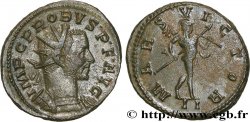
 Full data
Full data
